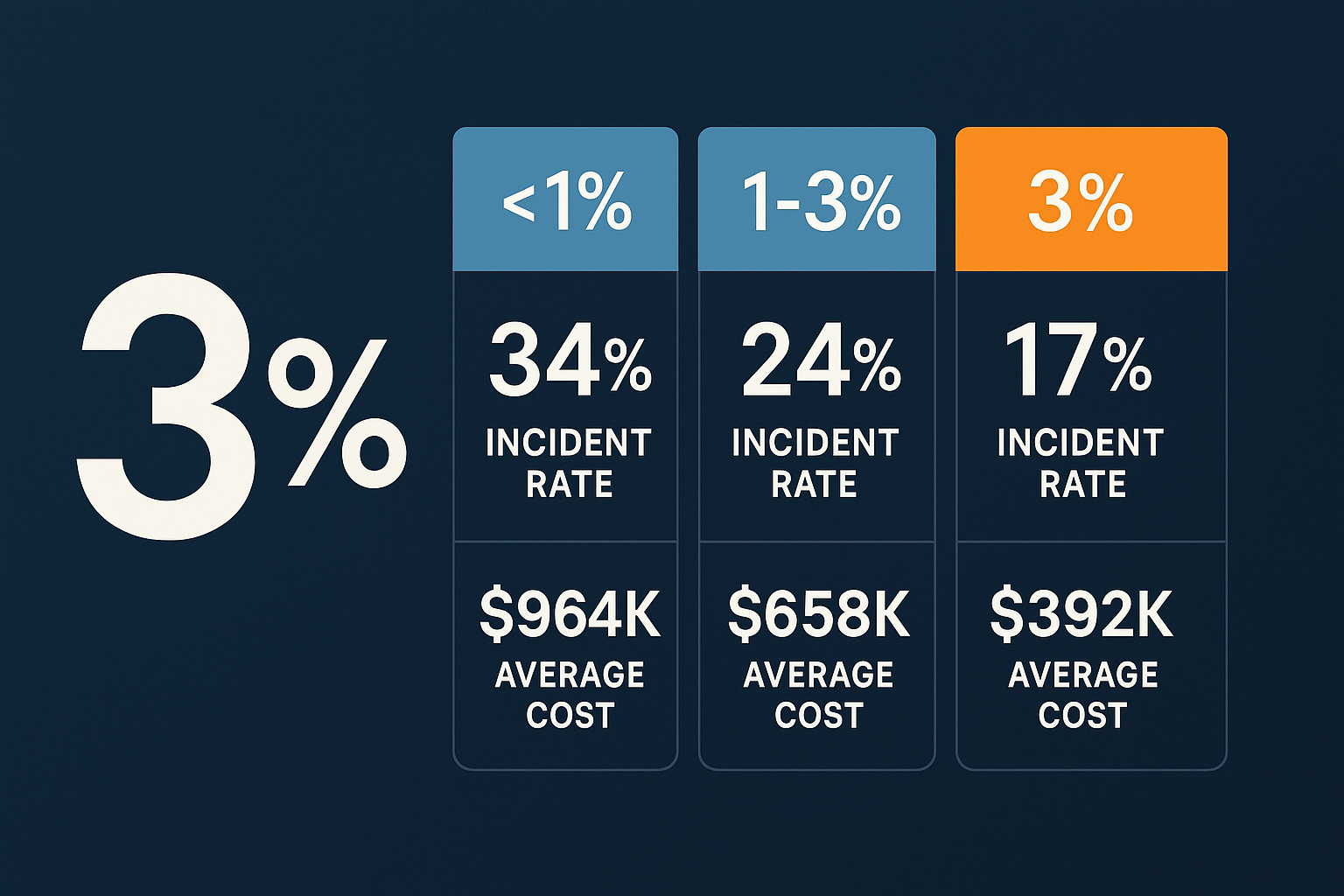 View all blogs
View all blogs
The Hidden Cost of Cybersecurity: Why 73% of SMBs Calculate ROI Wrong

Walk into any boardroom and mention “cybersecurity budget,” and you’ll see the same reaction: executives viewing security as a necessary evil—an expense that drains resources without generating revenue. But this perspective is not just wrong; it’s financially dangerous.
After analyzing the cybersecurity investments of over 200 small and medium businesses, I’ve discovered that 73% are calculating their security ROI completely backwards. The companies that get it right? They’re seeing returns that would make any CFO smile.
The Backwards Calculation Problem
Most executives ask the wrong question: “We’re spending $50,000 annually on cybersecurity. What’s our return on investment?”
This approach treats cybersecurity like a traditional business investment where you expect direct revenue generation. But cybersecurity isn’t about making money—it’s about protecting the money you already make.
The Real ROI Framework
The companies achieving extraordinary security ROI ask different questions:
- How much revenue does each security dollar protect?
- What’s our cost per hour of prevented downtime?
- How much customer trust and reputation value does security preserve?
- What’s the total cost of our digital assets at risk?
Case Study: Manufacturing Client Success
One of our manufacturing clients was skeptical about increasing their cybersecurity budget from $35,000 to $65,000 annually. They couldn’t see the “return” on the additional $30,000 investment.
Here’s how we calculated their actual ROI:
Protected Assets:
- Annual revenue: $12 million
- Digital-dependent operations: 85%
- Revenue at risk: $10.2 million
Potential Loss Scenarios:
- Average ransomware incident: $185,000 in direct costs
- Downtime cost: $8,600 per hour (industry average for their size)
- Average downtime duration: 22 days
- Reputation and customer loss: 15-25% revenue impact over 12 months
Total potential loss: $2.8 million
Security investment: $65,000
ROI calculation: Every $1 invested protected $43 in potential losses.
But wait—it gets better.
The Compounding Effect
Six months later, this client faced a sophisticated phishing attack. Their enhanced security controls detected and blocked it automatically. The attack would have likely caused:
- 5-7 days of system downtime
- $189,000 in direct costs
- Potential customer data exposure
- Regulatory compliance issues
Actual cost of the blocked attack: $0 Time to detection and response: 12 minutes Business disruption: None
When we calculated their annual ROI, including this prevented incident, the number was staggering: 847%.
The Framework That Works
Here’s the step-by-step ROI calculation that transformed how this client viewed cybersecurity:
Step 1: Calculate Digital Revenue at Risk Determine what percentage of your revenue depends on digital systems. For most modern businesses, this is 70-90%.
Step 2: Estimate Downtime Costs
- Calculate hourly revenue
- Add productivity losses
- Include customer service costs
- Factor in reputation damage
Step 3: Assess Incident Probability
- 43% of cyber attacks target small businesses
- Average company faces 4.1 security incidents annually
- 60% of attacked companies go out of business within 6 months
Step 4: Calculate Total Risk Exposure Risk = (Potential Loss × Probability of Occurrence)
Step 5: Compare to Security Investment ROI = (Total Risk Exposure – Security Investment) ÷ Security Investment × 100
Why Most Companies Under-Invest
Our analysis revealed that businesses discovering this framework realize they’re under-investing in cybersecurity by 60-80%. They’re essentially choosing to self-insure against losses that could destroy their business.
The New Security Budget Conversation
Instead of asking “How much should we spend on cybersecurity?” forward-thinking executives ask:
- “How much digital revenue are we protecting?”
- “What’s our cost tolerance for business disruption?”
- “Are we spending enough to protect our largest asset—our business operations?”
Moving Forward
Cybersecurity isn’t an expense—it’s profit protection. When calculated correctly, security investments often show higher ROI than most traditional business investments.
The question isn’t whether you can afford to invest in cybersecurity. The question is whether you can afford not to.
Ready to calculate your real cybersecurity ROI? Contact ColdSun Enterprise for a complimentary security investment analysis. We’ll show you exactly how much revenue your current security posture protects—and where the gaps might be costing you.









